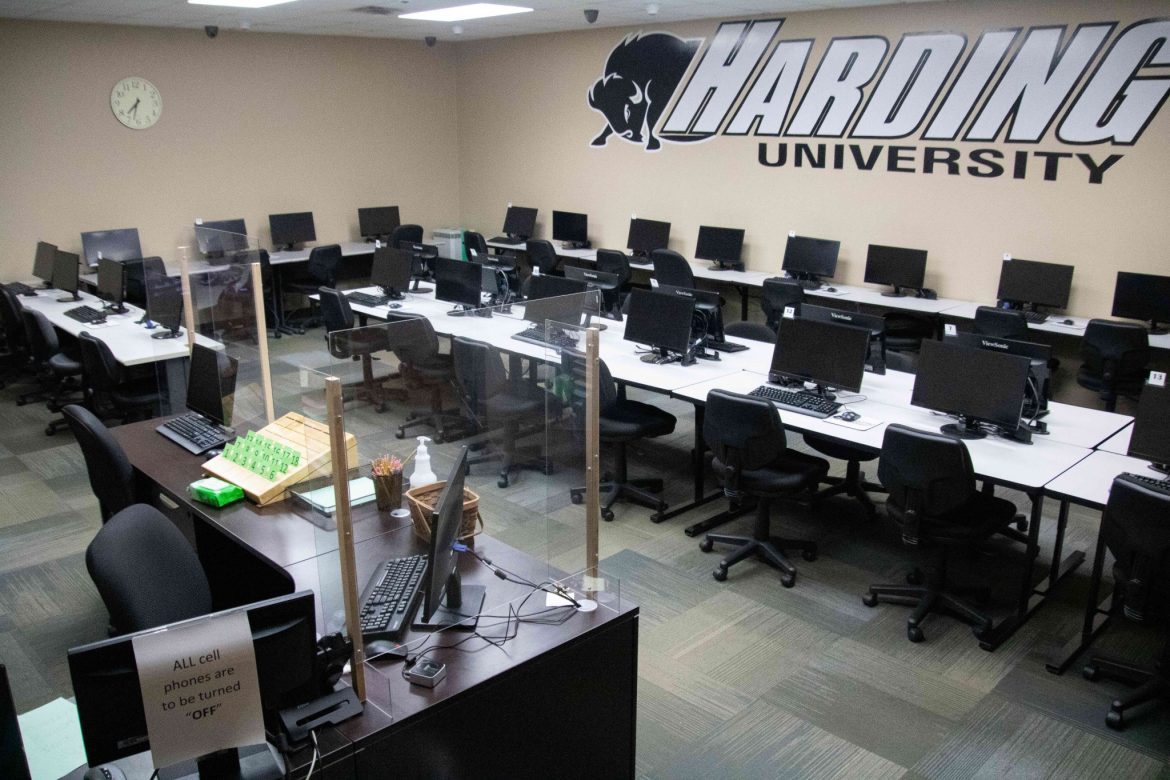Since the shift to online learning throughout 2020, there has been an increase in academic cheating throughout higher education, leading Harding faculty to alter methods for proctoring and administering exams as students return home to complete the semester and final exams.
ProctorU — an online exam proctoring company — reported that, from January through March, they caught people cheating on fewer than 1% of a total of 340,000 administered exams. However, in the height of remote testing from April through June, the number of exams it supervised jumped to 1.3 million and the cheating rate rose above 8%.
The shift to fully online classes in the spring semester came as a shock for students and faculty across campus. The sudden change to teaching in an online capacity presented new learning opportunities for higher education. However, students and faculty have had more time to prepare for the upcoming change to remote learning following Thanksgiving Break because of the methods used during the fall semester.
“I did everything differently this semester,” Dr. Monte Cox, professor and Dean of the College of Bible and Ministry, said. “I had to cut some lessons that would be after Thanksgiving Break, or move them to before. I [scheduled] some lessons to just completely Zoom or [record].”
Many faculty members, like Cox, will be changing final exams into reflective papers. In part, this will demonstrate holistic learning from students, but it will also maintain academic integrity, Cox said.
Cox addressed the challenges of online education and said he renewed his mindset for keeping classes engaged.
“I noticed in the spring that students weren’t as engaged the further into the semester,” Cox said. “Because of that, I knew that this semester I wanted to do more than just recorded lectures.”
Cox expressed a shared theme between faculty members: rethinking the typical examination. After Thanksgiving Break, classes will be fully online, including final exams, leading many professors to change the format of a normal final exam.
“I tried to test remotely without a videoing software, and it was just really hard,” Laurie Walker, assistant professor of mathematics, said. “These softwares make me feel like I have better test security and consistency.”
Walker teaches calculus and statistics both online and in person. The online course was adapted to accommodate students studying abroad and has helped the professfor to transition online.
Walker and Cox are two of many faculty who have adjusted their courses to have exams online during the on-campus portion of the semester.
“I started having one of my larger classes bring their laptops into the [Administration] Auditorium and take their tests on their computer,” Cox said.
While Cox and other faculty can monitor online exams for cheating in person, many professors have turned to online proctoring programs to help monitor tests when students are not physically in class.
“I knew that I needed to be able to go fully online, whether we were face to face or not,” said Walker. “I knew that they would have to take tests online this semester, whether some students were in person or in quarantine, but this way they are used to the tests.”
While the online testing software allows for professors to maintain test integrity and consistency for the semester, they are not the answer to cheating on assignments.
“Online proctoring was very new to faculty, and I have seen teachers realize that it is not the end-all security about tests and student assessments,” Paula Kirby, director of E-learning and multimedia services, said. “I think more teachers now understand that there are things that can be done in tests, online or paper, to ensure that everyone has equality.”
The E-Learning department that Kirby oversees helps faculty maintain consistency in the online classroom.
“E-learning has provided information and tutorials to put up roadblocks for cheating,” Kirby said. “We have a responsibility to provide a fair, equal, playing field.”
